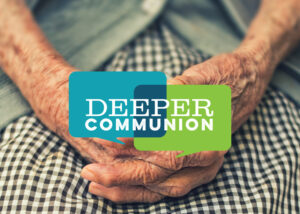In John 14:6, Jesus claims that he is the truth. What does this mean?
I used to think that the truth of Christ was a set of doctrines I needed to believe in, but I’ve become convinced that it is actually his state of consciousness and his way of life that we are now called to participate in.
When Jesus says, “I am the way, the truth and the life,” he is not saying that our agreement with his impressive résumé—describing who he is and his accomplishments—will lead to our salvation. He is declaring that his way is truth, his life is truth. Jesus is saying that his truth, his way and his life are interwoven together. We cannot know the truth of Christ without also following his way and embodying the Spirit of his life. Truth, way and life are inseparable in Christ.
Jesus also binds truth and freedom together in the Gospel of John. He says, “[Y]ou will know the truth, and the truth will set you free” (John 8:32). This raises two questions:
- How do we know the truth?
Jesus gives us a major clue in the verse prior, when he says, “If you continue to follow my teaching” (John 8:31). It seems that this is a prerequisite. We will know the truth by putting his teachings into practice. To know the truth is to forgive those who have wronged us; to not judge people we disagree with; and to share our time, money and possessions with people in need; and so on.
For Jesus, the intellectual pursuit of knowledge is not the best path to divine truth. Divine truth is the path. It is the way, more than the destination. (“Destination” means a specific theological territory we land and settle on.) We “know” the truth by acting in truth, by being truth.
This makes me wonder if we’d be better off putting away the text books and Bible studies for a while in order to focus on applying the teachings of Jesus that we already understand. When we continue to search the Bible for new insight and knowledge before putting into practice what has already been made clear to us, we’re probably not pursuing truth. We’re likely avoiding it.
- How does truth set us free?
I believe Jesus is saying that false beliefs and lies impair our freedom. Addicts, for example, are imprisoned by the false belief that they need alcohol, drugs, achievements, money or whatever they are addicted to, in order to be happy and fulfilled. This belief is a freedom-crushing lie, as our addictions and attachments are the very things destroying our happiness and fulfillment.
Jesus is saying that we are set free by becoming aware of a particular truth, namely, that we are already free. Austrian therapist and Holocaust survivor Viktor Frankl said, “Forces beyond your control can take away everything you possess except one thing, your freedom to choose how you will respond.” The truth is, you are free and your freedom can never be taken from you. However, only as we live in the awareness of this truth of our innate freedom are we set free.
And I believe that Jesus is saying our freedom is found in accepting and revealing the whole truth of who we are. Jesus says, “Whoever lives by the truth comes into the light” (John 3:21). Living in the light requires awareness, honesty, integrity and vulnerability. However, discernment is also important. Jesus isn’t telling us to air our dirty laundry for all to see. Most people haven’t earned that right or asked for that responsibility. But God has. God already knows our dirty laundry—past, present and future. So to live in truth is to consciously bring everything about ourselves into the light of God’s presence, because the truth is that God already sees our entire beings. Our fig leaves hide nothing from God (Genesis 3:7).
When we bring our whole selves, including aspects of ourselves that we don’t want anyone else to see and are too ashamed to face ourselves, three amazing things happen:
- We are liberated from guilt, fear and shame.
- We open up the most hidden, darkest and tender parts of our beings to God’s transformative love—the parts that usually need it the most.
- And over time, all that we expose to God’s light is transformed and becomes light itself (Ephesians 5:13).
Troy Watson is pastor of Avon Mennonite Church in Stratford, Ont. This is Pt. 8 of “The pursuit of truth” series.
Read part 1
Read part 2
Read part 3
Read part 4
Read part 5
Read part 6
Read part 7






Leave a Reply
You must be logged in to post a comment.